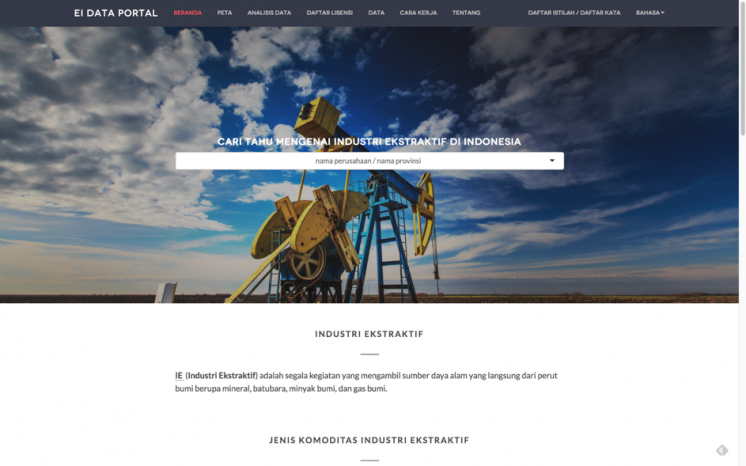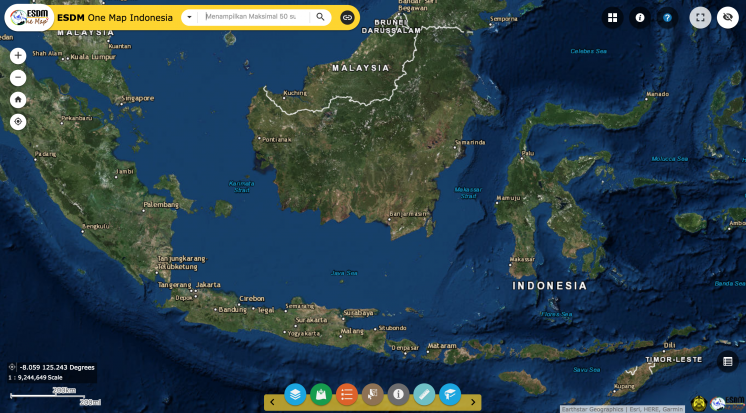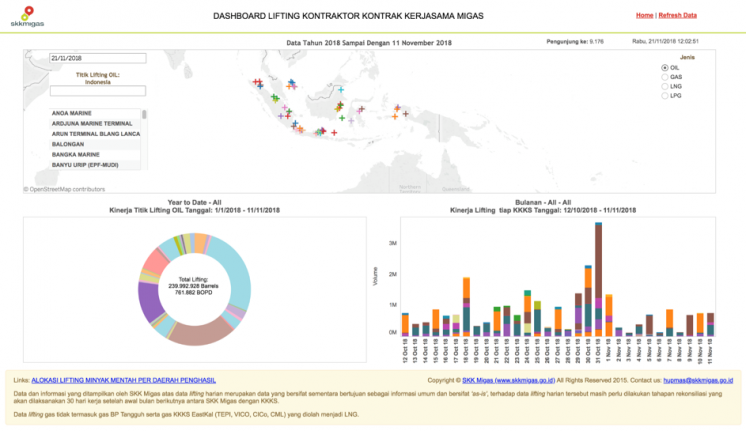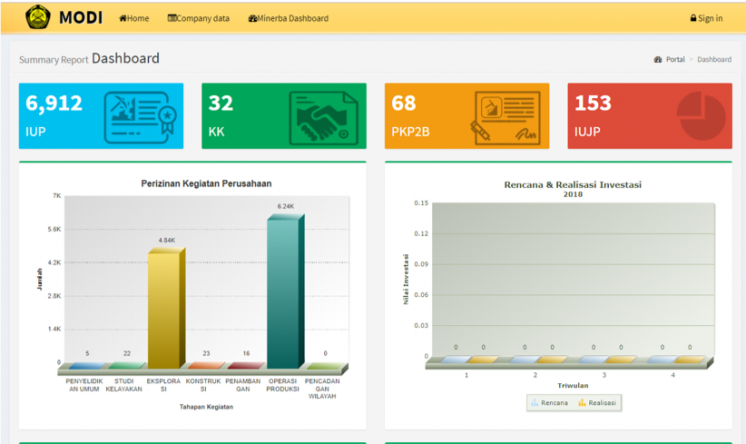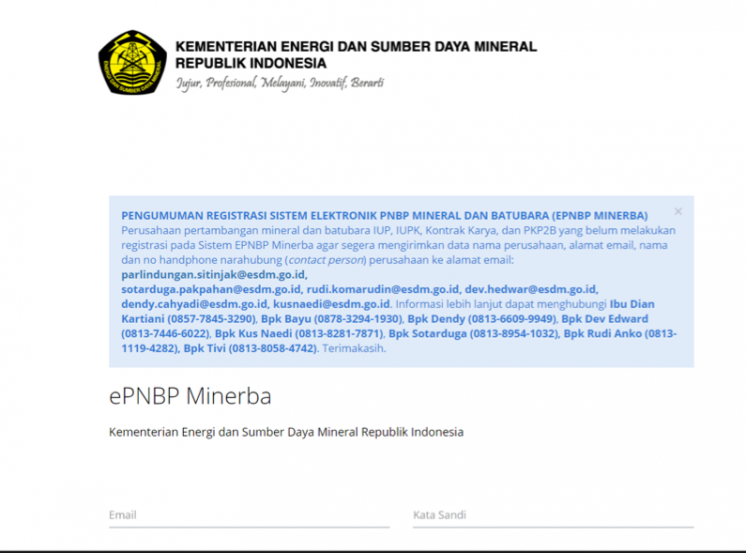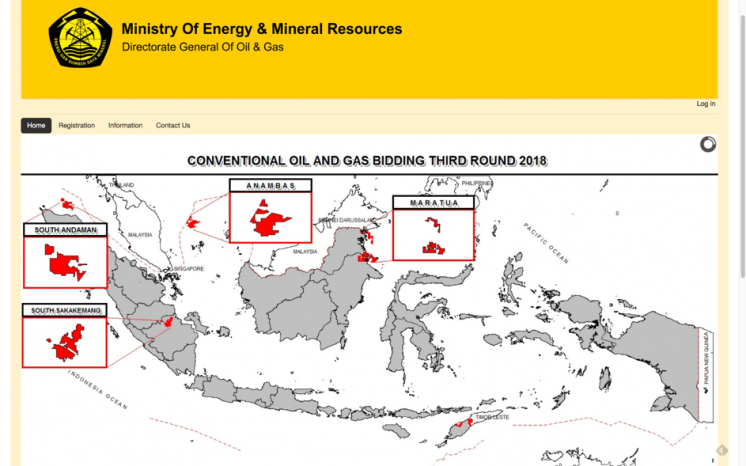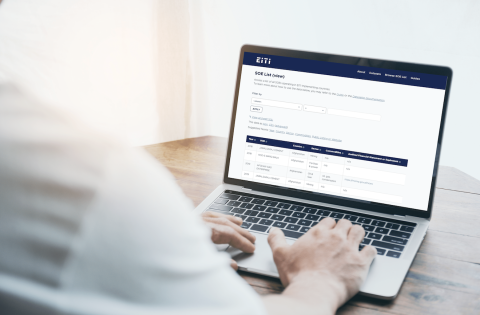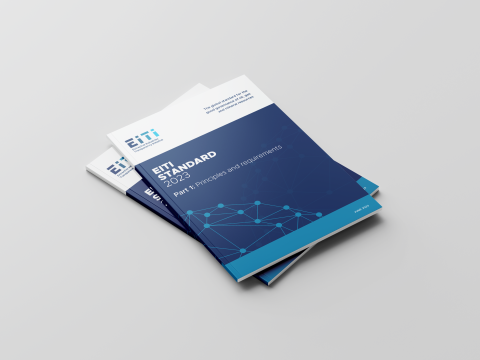
How Indonesia is paving the way for more open disclosure of extractive industries data
Promoting open data in Indonesia
Indonesia, the world’s fourth most populous country, abounds in natural resources. In 2016, its oil, gas and mining activities contributed 7% of total government revenues. Access to the internet is becoming more widespread across the 17,000 island archipelago nation, providing a cost-efficient way to make extractives data accessible to communities near oil, gas and mining projects. Sub-national transfers of extractive revenues amounted to USD 1.6 billion in 2016, equivalent to 13.6% of total government revenues. Resource-producing regions receive a greater share of these revenues, which generates a great deal of local interest in extractives data.
The EITI International Secretariat was recently in Indonesia to consult with stakeholders and to assess the data disclosed by, and the impact of, EITI Indonesia. The Validation of EITI Indonesia’s process looks beyond the data disclosed in EITI Reports to also consider information and data published online, otherwise known as “systematic disclosure”. Making information freely accessible to the public is a core tenet of the EITI process.
Indonesia is keeping pace with the global trend towards more openness and online disclosure of data. E-government is already the norm across ministries. There is room for improvement: the country could release more granular data at the project level instead of aggregated figures by company, and the disclosed audited financial statements of state-owned companies such as Pertamina, PT Bukit Asam Tbk, PT Aneka Tambang Tbk could be improved by providing more details and improving access to data. By expanding its systematic disclosure of EITI information, scrutinising online sources of data and identifying gaps, the Indonesian authorities can provide even timelier data and a more effective EITI process that focuses on using the information, rather than reporting it.
Nevertheless, Indonesia is well positioned to become one of the first countries to usher in the new era of systematically disclosing EITI information. The Indonesian government has shown a keen interest in developing their e-government capabilities and has the resources, capacity and know-how to be one of the first implementing countries to fully “mainstream” the EITI. Indonesia EITI’s open data policy is a manifesto for systematic disclosure – it references e-government, connecting data sets together and making agencies accountable for not publishing data. Below are some examples of how Indonesia is paving the way for more open, timely and reliable disclosure of its extractive industries data.
"The EITI supports our open data policy so that we can routinely disclose extractives data and encourage reform across government agencies involved in oil, gas and mineral sectors."
Montty Girianna, Deputy Coordinating Minister for Energy and Mineral Resources
Six examples of systematic disclosure from Indonesia
and two "open data" honourable mentions
Currently, EITI Indonesia is complementing the authorities’ e-government efforts by compiling older data sets, addressing gaps, providing more granularity and addressing tax confidentiality issues. By disclosing information in open data formats, the Indonesia EITI data portal is a stepping stone to full systematic disclosure. The next step would be to repurpose this portal to draw together different datasets and act as a guide, directing users to mainstreamed EITI data on company and government websites.
The EITI Board recently stated that mainstreaming is the default expectation for new and existing EITI implementing countries and will look favourably on applications from countries with a similar profile to Indonesia’s e-government capacity. The six examples below come from Indonesia’s government ministries websites and provide data relevant to the EITI’s requirements.
EITI Indonesia’s Extractive Industries Portal
Honourable mention
The EITI Data Portal is a great example of open data. It contains production volumes and values for oil and gas products, and aggregate for the mining sector as a whole. The portal contains license information for all mining, oil and gas licenses featured in EITI Reports, including contract type, license-holder names, type of commodity, location, and dates of award and expiry. The EITI Data Portal is updated annually, following the publication of EITI Reports, and is therefore not systematic disclosure. However, it could be a great platform for collating information that other agencies disclose. If the portal is able to draw more on other institutions and less on EITI Reports, it could be the first portal to do so among the EITI’s 51 member countries.
Satu Data Indonesia
Honourable mention
The Data Indonesia Dalam Satu is the open data portal for all government agencies in Indonesia. Information from all the portals below can be found on the platform but gaps and overlaps remain. All data hosted on the platform is under a creative commons 4.0 licence, which allows users to download and reuse data. However, as information must be uploaded by each agency, it is not an example of systematic disclosure.
1. Online ESDM (Ministry of Energy and Mineral Resources) Geospatial Portal
The online geospatial portal is the public licence cadastral portal, which integrates information on all land use and seismic activity on a single portal. It has an array of switchable layers that shows the name of oil and gas working and exploration areas. For mining, it shows mineral and coal company names, the districts and provinces they operate in, the quality of the coal, the status and stage of the mines, the type of permits and the area coordinates. The portal is freely accessible and regularly updated.
2. Ministry of Law Corporate Register
The Ministry of Law’s website includes a portal for company information, including their legal ownership, although the service requires registration and charges a fee for access. Legal ownership information is the first step towards disclosing beneficial ownership by 2020, in line with EITI Requirements. There are plans to incorporate beneficial ownership information in this register, although public access is still being discussed.
3. SKK Migas Dashboard: Updated information on oil and gas liftings
SKK Migas is the oil and gas regulator – their dashboard shows oil, gas, LNG and LPG liftings per month. Users can click and get company by company annual data. One weakness is that the data wipes itself occasionally, so there is no historical data earlier than January of each current year. The portal is freely accessible and regularly updated. Indonesia’s commodity trading report provides more details, albeit older data, on oil exports by cargo, including destination, value and port of shipment. This level of detail covering more timely data could potentially be incorporated in the SKK Migas dashboard.
4. Minerba One Data Indonesia (MODI)
The MODI platform offers a public user interface for key data on the extractives sector and a restricted-access portal for the government’s licensing administration. The portal includes information on companies, including their names, addresses, shareholders, directors, tax IDs, history of mining permits, contract date etc. The portal also includes information on PNBP (an in-kind revenue that companies pay in cash to the government equivalent to their share of production), DBH (a type of subnational transfer from oil, gas and mining activities) and information on community development funds.
5. E-PNBP
The e-PNBP is a web-based online application for the calculation and payment of non-tax state revenues (PNBP). It integrates production and non-tax revenue data to ensure stricter enforcement of payments. Through the portal, local communities can monitor and track non-tax revenues, such as royalties from each license, at the local level.
6. Oil and Gas E-Tender Portal
The e-tender portal manages oil and gas license tenders and provides information on block bidding rounds, including an overview of the process, and a list of technical and financial criteria required for a successful bid.
With thanks to Gay Ordenes, Alex Gordy and Christina Berger for their contributions.


